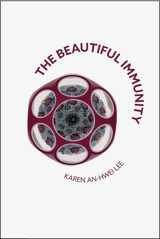
Athenaeus (ca. 170ca. 230 CE), a Greek of Naucratis in Egypt, lived in Rome and wrote a historical work now lost. Of the fifteen books of his surviving Deipnosophists ('Sophists at Dinner'), the first two and parts of the third, eleventh, and fifteenth exist only in summary, the rest apparently complete. In it he pretends to tell a friend about a banquet at a scholar's house whither the learned guests brought extracts from poetry for recitation and discussion. Much of the matter however concerns the food provided and accessories. One learns about cooks, strange dishes, wines, menu cards, and countless other matters. Athenaeus was an antiquarian. The whole work, which mentions nearly eight hundred writers and two thousand five hundred writings, is a large treasury of information not only about table matters but also music, dances, games, and all sorts of literary subjects. And it abounds in quotations, mostly made direct by Athenaeus himself, from authors whose writings have not survived.
The Loeb Classical Library edition of The Deipnosophists is in seven volumes. There is a comprehensive index in the final volume.

Rome, from the beginning.
Livy (Titus Livius), the great Roman historian, was born at or near Patavium (Padua) in 64 or 59 BC; he may have lived mostly in Rome but died at Patavium, in AD 12 or 17.
Livy’s only extant work is part of his history of Rome from the foundation of the city to 9 BC. Of its 142 books, we have just thirty-five, and short summaries of all the rest except two. The whole work was, long after his death, divided into Decades or series of ten. Books 1–10 we have entire; books 11–20 are lost; books 21–45 are entire, except parts of 41 and 43–45. Of the rest only fragments and the summaries remain. In splendid style Livy, a man of wide sympathies and proud of Rome’s past, presented an uncritical but clear and living narrative of Rome’s rise to greatness.
The Loeb Classical Library edition of Livy is in fourteen volumes. The last volume includes a comprehensive index.

Ancient Roman word lore.
Varro (M. Terentius), 116–27 BC, of Reate, renowned for his vast learning, was an antiquarian, historian, philologist, student of science, agriculturist, and poet. He was a republican who was reconciled to Julius Caesar and was marked out by him to supervise an intended national library.
Of Varro’s more than seventy works involving hundreds of volumes we have only his treatise On Agriculture (in LCL 283) and part of his monumental achievement De Lingua Latina (On the Latin Language), a work typical of its author’s interest not only in antiquarian matters but also in the collection of scientific facts. Originally it consisted of twenty-five books in three parts: etymology of Latin words (Books 1–7); their inflections and other changes (Books 8–13); and syntax (Books 14–25). Of the whole work survive (somewhat imperfectly) Books 5–10. These are from the section (Books 4–6) that applied etymology to words of time and place and to poetic expressions; the section (Books 7–9) on analogy as it occurs in word formation; and the section (Books 10–12) that applied analogy to word derivation. Varro’s work contains much that is of very great value to the study of the Latin language.
The Loeb Classical Library edition of On the Latin Language is in two volumes.
READERS
Browse our collection.
PUBLISHERS
See BiblioVault's publisher services.
STUDENT SERVICES
Files for college accessibility offices.
UChicago Accessibility Resources
home | accessibility | search | about | contact us
BiblioVault ® 2001 - 2024
The University of Chicago Press









